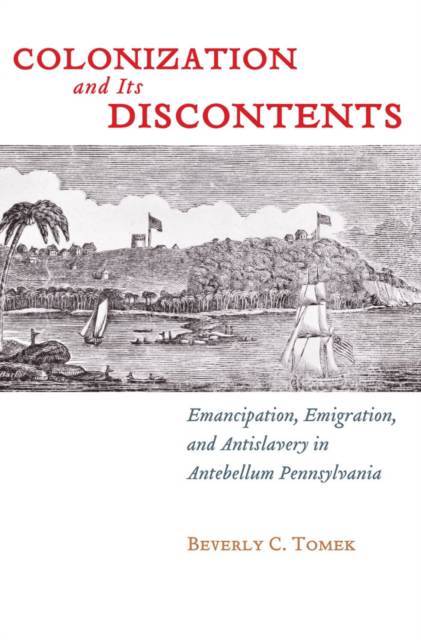
- Retrait gratuit dans votre magasin Club
- 7.000.000 titres dans notre catalogue
- Payer en toute sécurité
- Toujours un magasin près de chez vous
- Retrait gratuit dans votre magasin Club
- 7.000.0000 titres dans notre catalogue
- Payer en toute sécurité
- Toujours un magasin près de chez vous
Colonization and Its Discontents
Emancipation, Emigration, and Antislavery in Antebellum Pennsylvania
Beverly C TomekDescription
Pennsylvania contained the largest concentration of early America's abolitionist leaders and organizations, making it a necessary and illustrative stage from which to understand how national conversations about the place of free blacks in early America originated and evolved, and, importantly, the role that colonization--supporting the emigration of free and emancipated blacks to Africa--played in national and international antislavery movements. Beverly C. Tomek's meticulous exploration of the archives of the American Colonization Society, Pennsylvania's abolitionist societies, and colonizationist leaders (both black and white) enables her to boldly and innovatively demonstrate that, in Philadelphia at least, the American Colonization Society often worked closely with other antislavery groups to further the goals of the abolitionist movement.
In Colonization and Its Discontents, Tomek brings a much-needed examination of the complexity of the colonization movement by describing in depth the difference between those who supported colonization for political and social reasons and those who supported it for religious and humanitarian reasons. Finally, she puts the black perspective on emigration into the broader picture instead of treating black nationalism as an isolated phenomenon and examines its role in influencing the black abolitionist agenda.
Spécifications
Parties prenantes
- Auteur(s) :
- Editeur:
Contenu
- Nombre de pages :
- 304
- Langue:
- Anglais
- Collection :
- Tome:
- n° 3
Caractéristiques
- EAN:
- 9780814764534
- Date de parution :
- 24-09-12
- Format:
- Livre broché
- Format numérique:
- Trade paperback (VS)
- Dimensions :
- 152 mm x 231 mm
- Poids :
- 453 g

Les avis
Nous publions uniquement les avis qui respectent les conditions requises. Consultez nos conditions pour les avis.






